- Home
- slideshows
- miscellaneous
- I left New York City to drive to my parent's farm in Wisconsin, and the highways were nearly empty of cars but full of semis. 40 photos show the surreal journey.
I left New York City to drive to my parent's farm in Wisconsin, and the highways were nearly empty of cars but full of semis. 40 photos show the surreal journey.
We left Manhattan just after 5 p.m. on Friday. While there were still a concerning number of people out and about, it was a significant drop from a typical evening. Gov. Andrew Cuomo ordered all non-essential workers to stay home from work on Friday.

New York has become the epicenter of the coronavirus outbreak in the US. By Monday morning, the state had reported nearly 6% of the global COVID-19 cases. Part of the reason for the high number is because New York is testing more people than any other state.

Source: Business Insider
Many New Yorkers were wearing masks outside, despite the CDC's recommendation against the general public wearing them. Healthcare workers, who need masks and other medical equipment to protect themselves, are facing a shortage of supplies.

Sources: CDC, Business Insider
I couldn't believe how empty the Holland Tunnel was at 5:25 p.m. on a Friday. Usually, people who work in the city and live in Jersey are leaving their jobs in droves at that time.
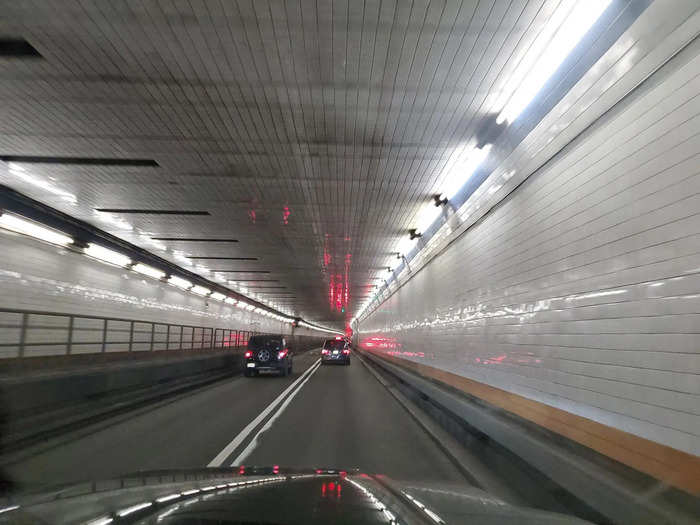
During the entire trip, we counted only 11 planes. Some of them could have been cargo planes. Delta said last week it was parking at least half its fleet, and dozens of other airlines have suspended operations or reduced flights.
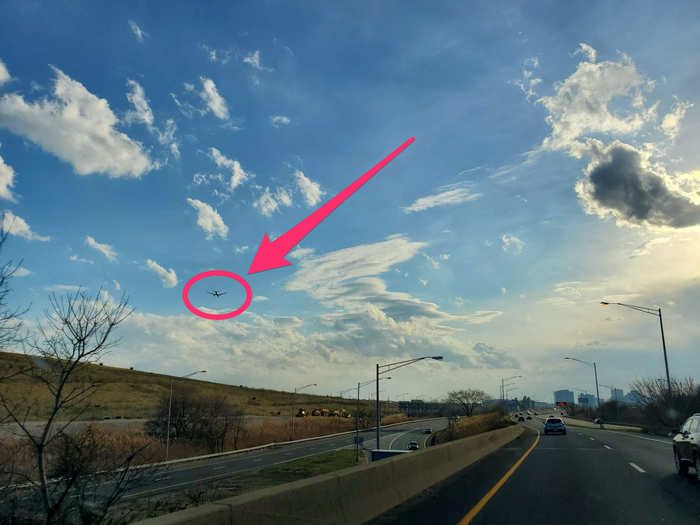
Source: Business Insider
Before we knew it, the roads were mostly empty.
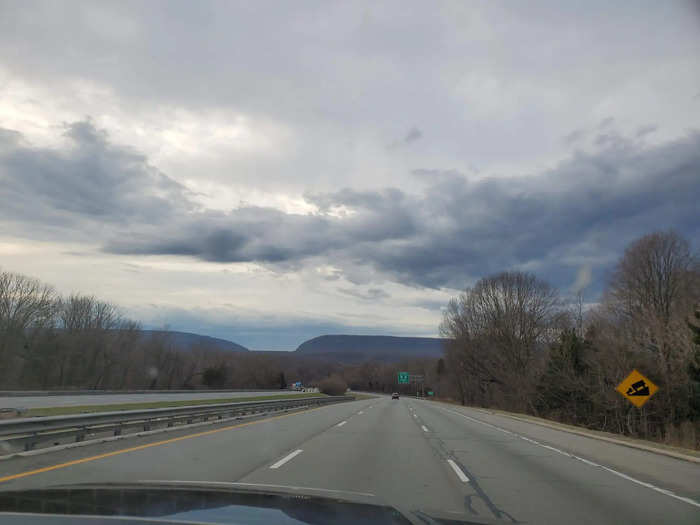
All the rest stops in Pennsylvania were closed to the public but open for truckers to park and rest.
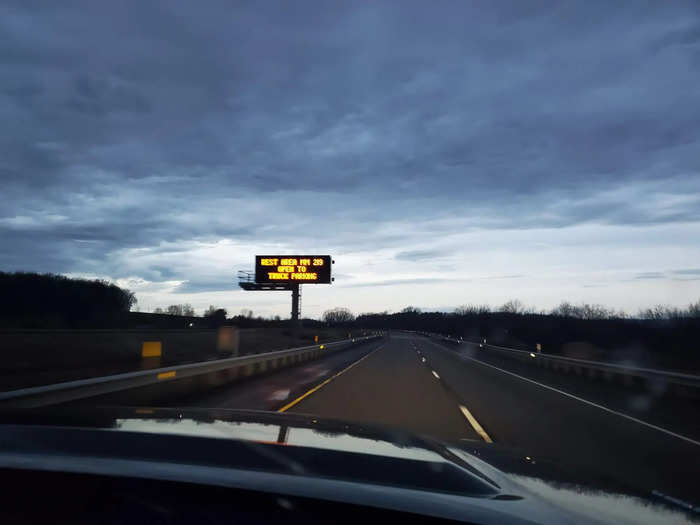
We stopped at a Hampton Inn in Pennsylvania for the night, and an employee told us only 12 of 69 rooms were full. Another employee said the owner was temporarily closing the property this week because they have so few reservations.
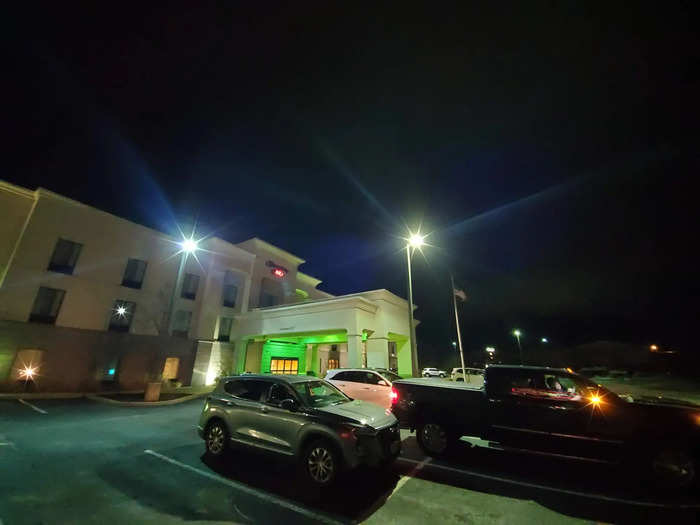
Notes from Hilton informed patrons of the measures the company was taking to keep the hotel clean during the pandemic. The pool was closed, and they said they took "extra precautions" to sanitize the rooms. Breakfast was also a to-go option instead of a buffet.
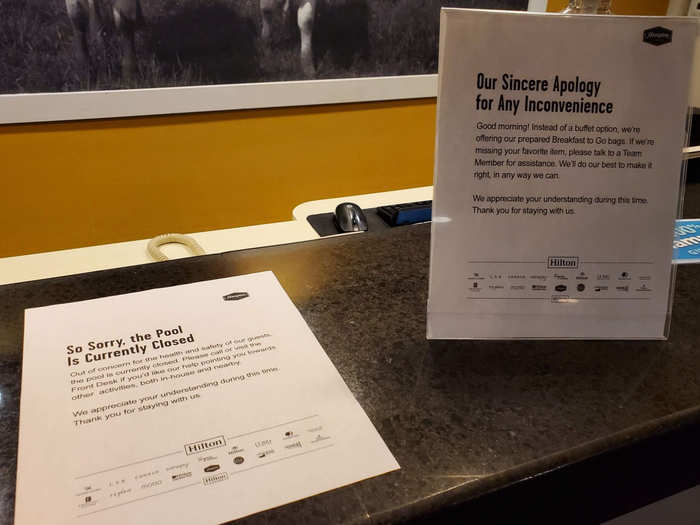
The next day, we got on the road just before 5:30 a.m. It was just us and truckers. Two hours later, the sun finally came up.
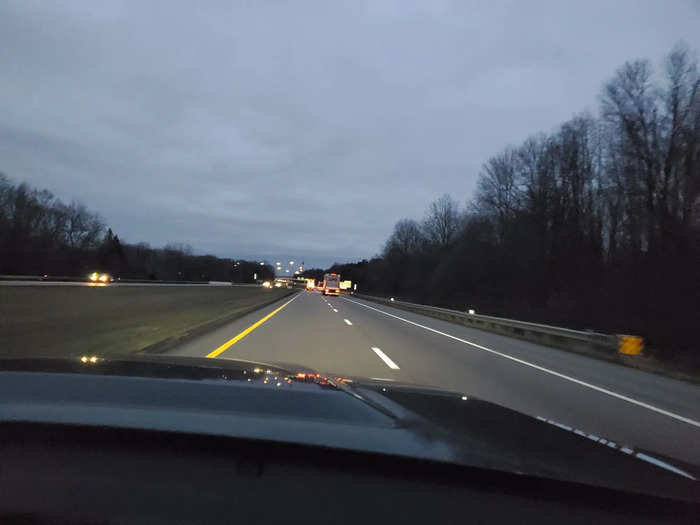
We stopped at our first rest stop in Ohio around 7:30 a.m. It was a ghost town.
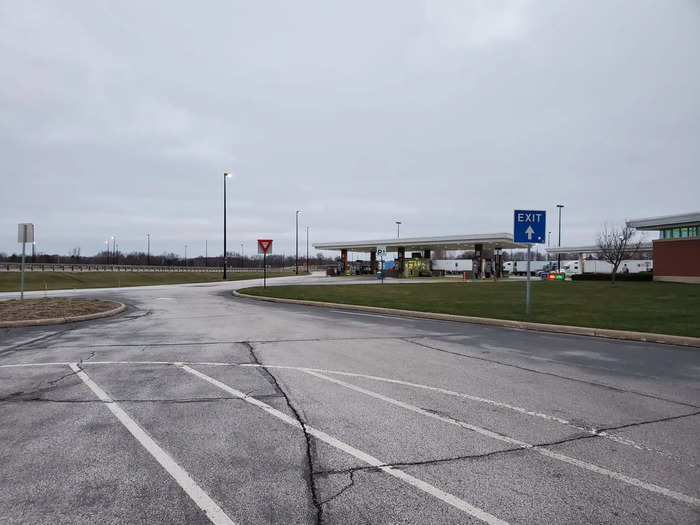
The Starbucks inside was closed. A note on the gate read, "We are working hard to serve you through these tough times. A few restaurants had to temporarily close, but we will be back soon. Thanks for your understanding."
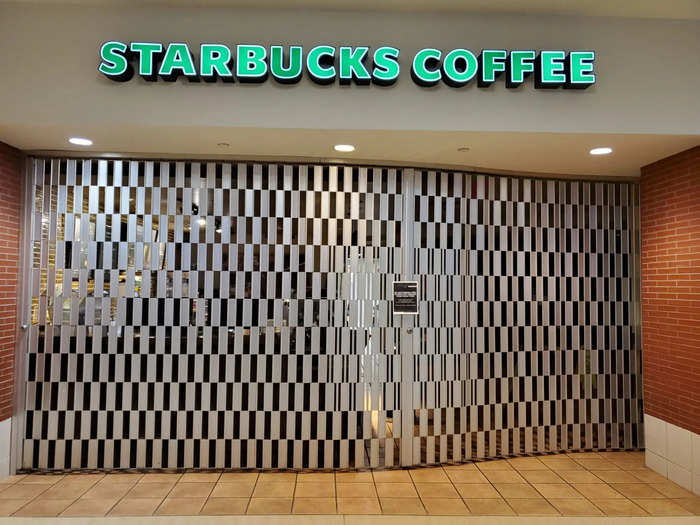
While Starbucks was closed, the McDonald's and PZA were open. Every McDonald's we saw on the trip was open.
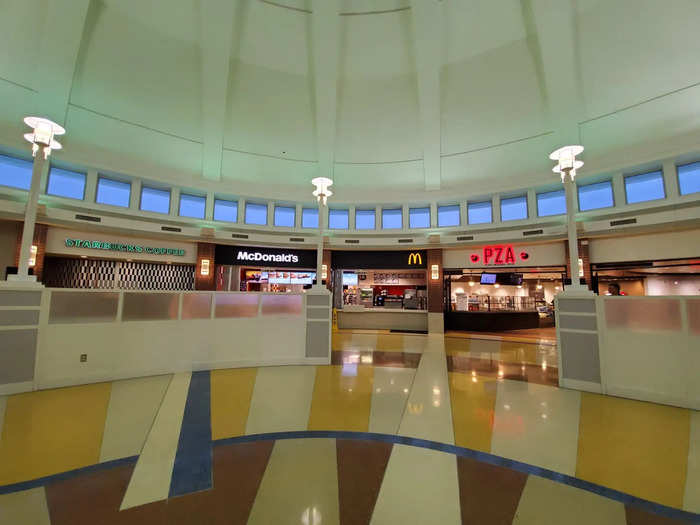
Signs warning of the spread of the virus and extra precautions businesses were taking were everywhere, including on the McDonald's ice machine asking customers not to get refills or use their own cups.
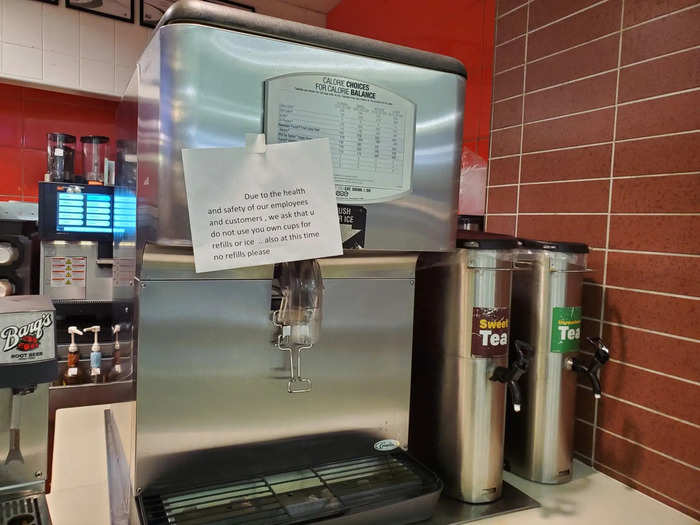
The hand dryers in the bathrooms had signs saying they were out of service, too. A hygiene expert told Insider's Anna Medaris Miller that they're one of the worst ways to dry your hands and that paper towels are one of the best.
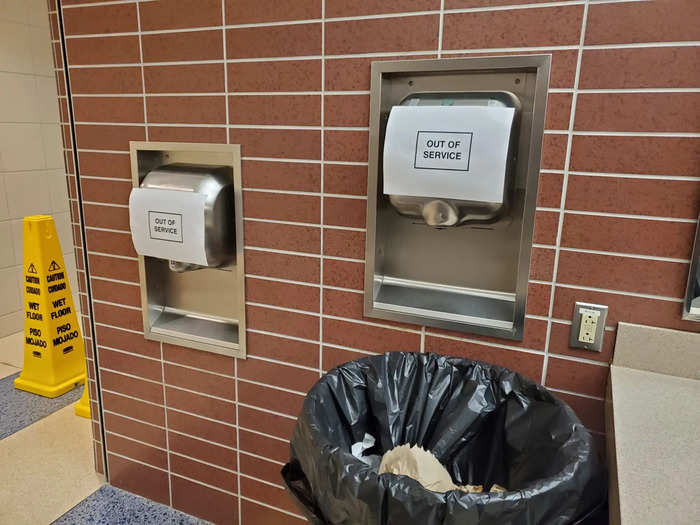
Source: Insider
The rest stop usually has tables and chairs in this atrium, but they were gone to encourage social distancing. The Trump administration is telling Americans to avoid gatherings of 10 or more people.
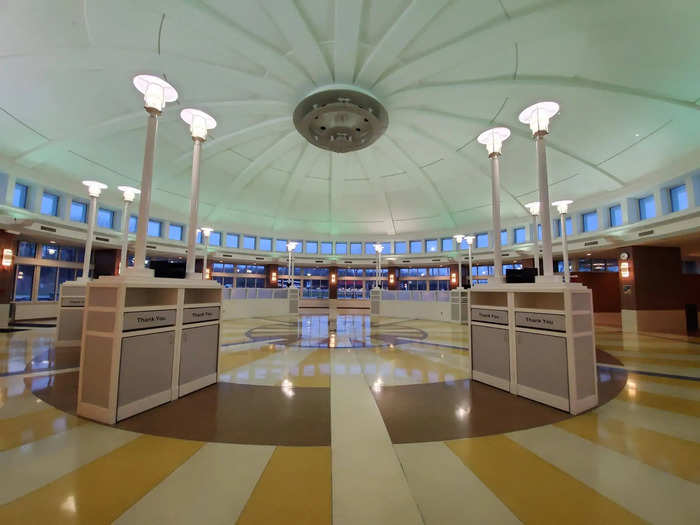
Source: Business Insider
The patio outside was closed, too.
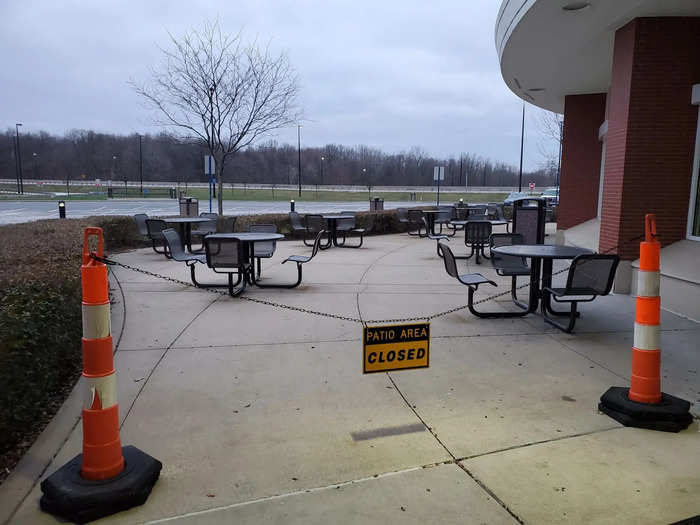
McDonald's breakfast burritos and hashbrowns in hand, we hit the road again. Fast food chains across the country are staying open to feed people, as states are considering them "essential businesses."
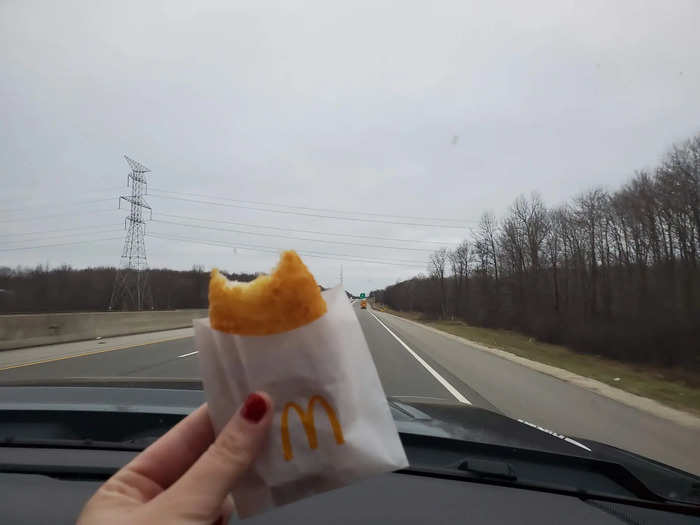
Source: Business Insider
One of the reasons so many trucks were on the roads is because the Trump administration suspended a road safety law at the federal level for the first time in history, allowing truckers to deliver goods and supplies to areas hard-hit by the virus.
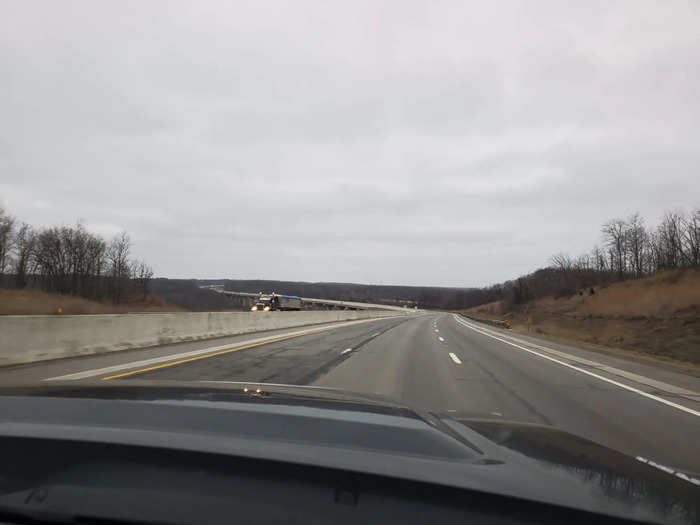
Source: Business Insider
We kept an eye out for the brands of trucks we saw, and Amazon had more than Walmart. The bright blue semis were easy to spot.
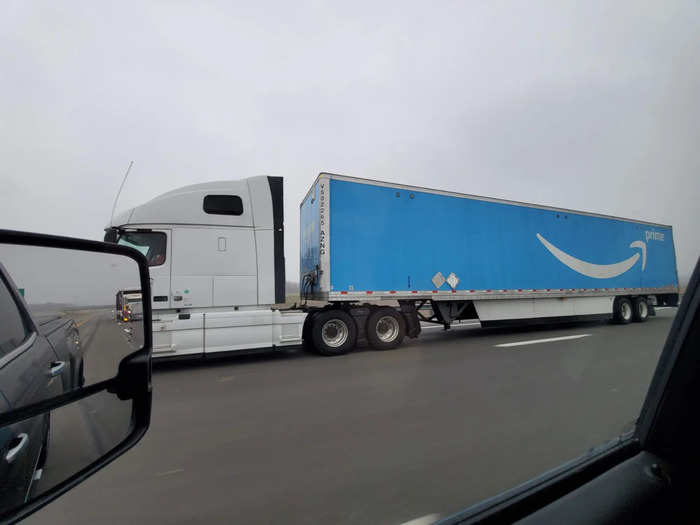
At one point, the weather reflected the apocalyptic feeling of the trip.
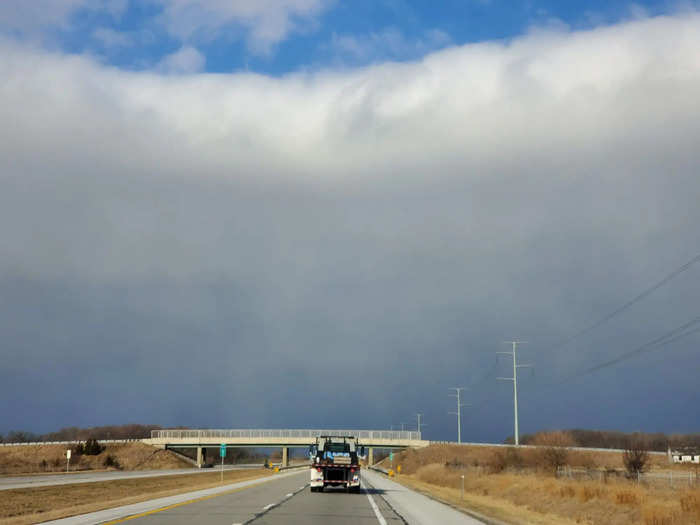
We stopped at another rest stop in Ohio, and this time the Starbucks was open.
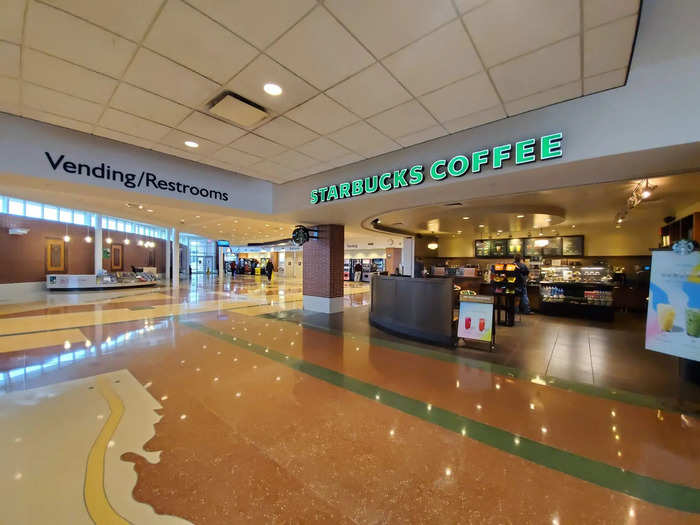
But they had placed signs on their benches, asking people not to sit on them.
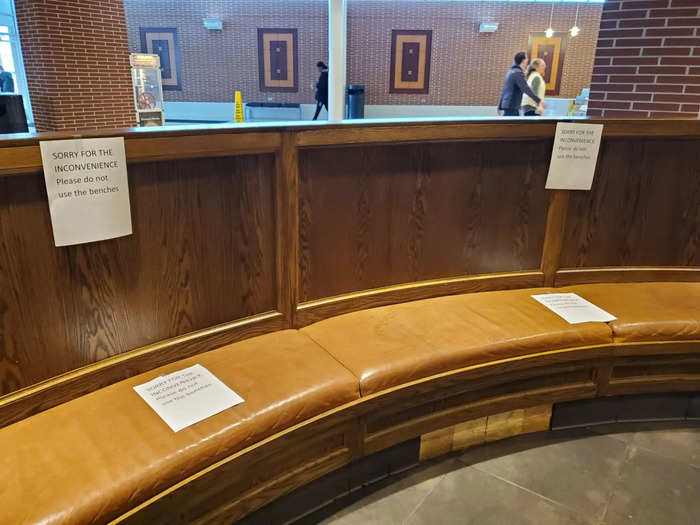
This seating area was barricaded with tables, and a sign told visitors: "premises for take-out food only."
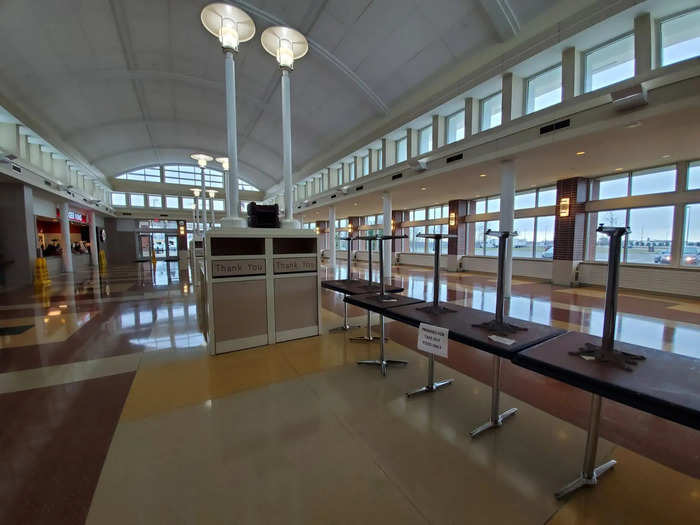
These massage chairs in the truckers' lounge had caution tape on them so people didn't try to use them.
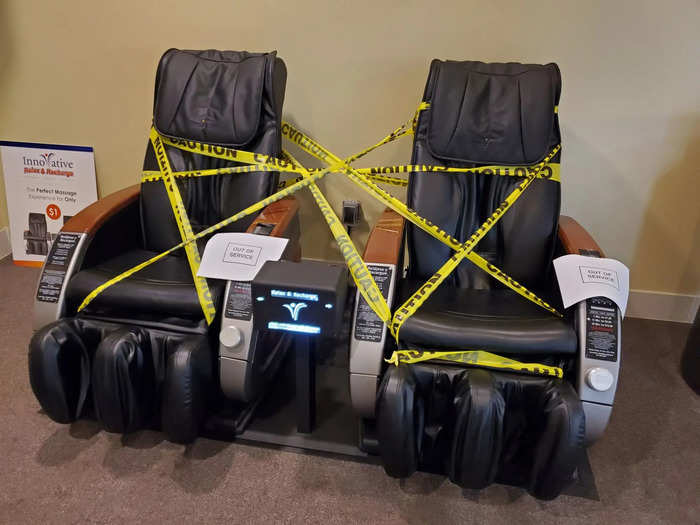
Every time we stopped somewhere (which we only did seven times total during the trip), we washed our hands in the bathroom and used hand sanitizer when we got back in the truck. We also sanitized our phones with alcohol wipes.
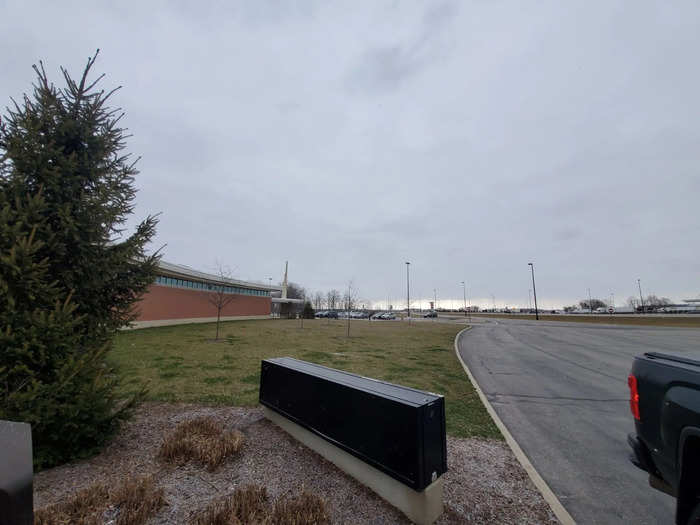
Road signs in Indiana urged motorists: "Keep your hands clean. Use credit cards."
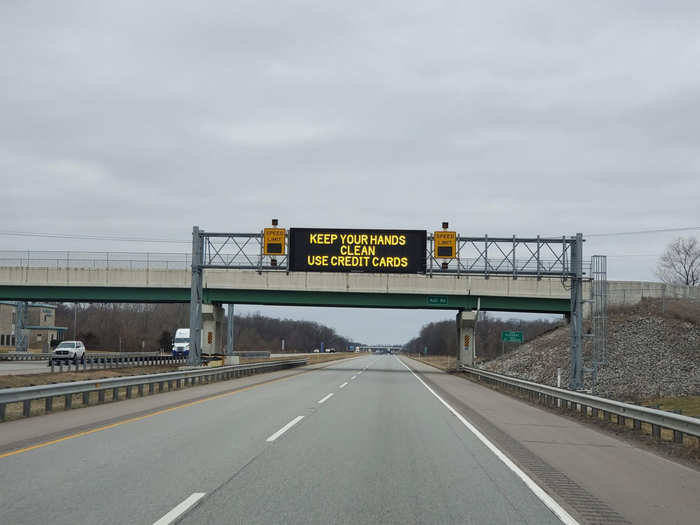
We made it to Chicago, and traffic was shockingly light. Anyone who's driven through the windy city knows how brutal traffic can get. The lack of people on the roads gave me hope that people were taking the social distancing guidelines to heart.
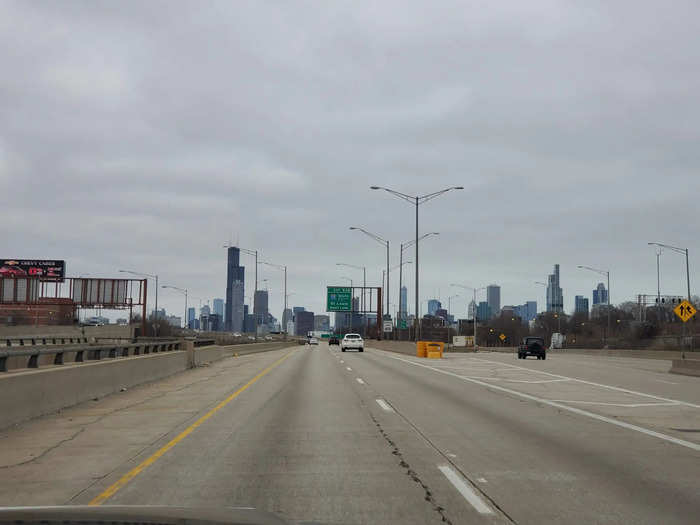
We saw more cars passing through the city than any other point in the trip, and it still only took us 8 minutes to get through Chicago.
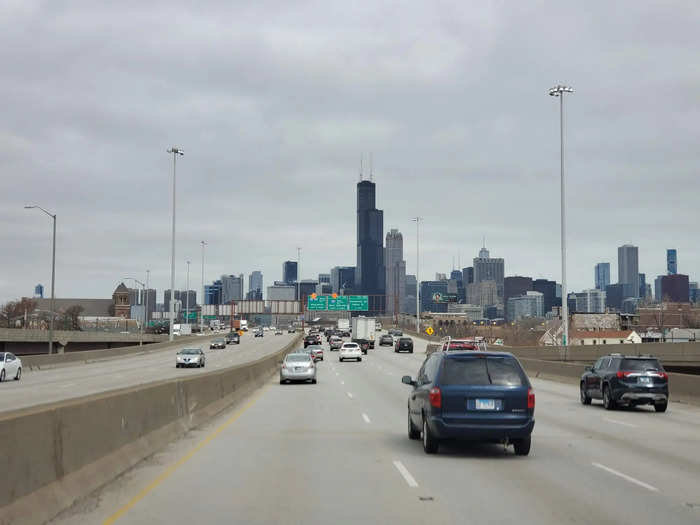
The cash lanes at the toll booths outside Chicago were closed, too.
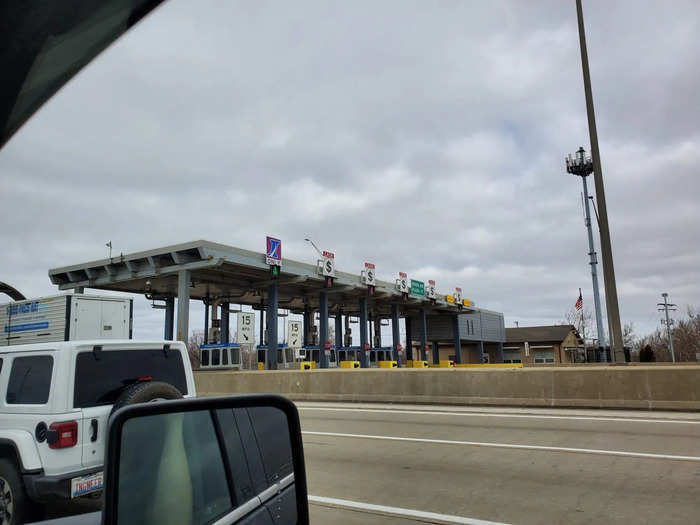
Signs urged people to pay their tolls online if they didn't have E-ZPass or I-Pass.
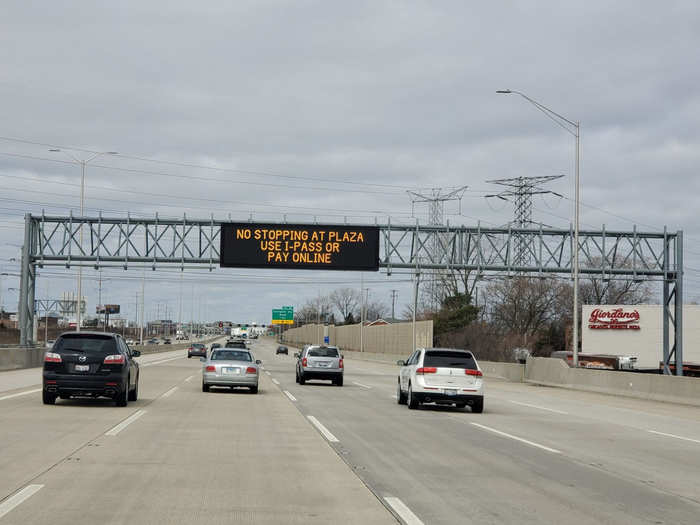
We spotted a fleet of Amazon delivery vans heading west on I-90 outside Chicago. The company is hiring 100,000 new roles to keep up with the demand for delivering essential goods for the coronavirus pandemic.
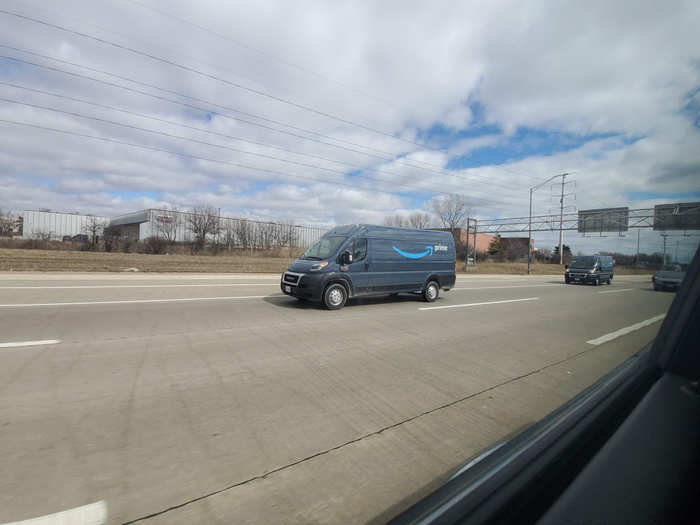
Source: Business Insider
As we crossed from Illinois into Wisconsin, the road signs told us to "hunker down."
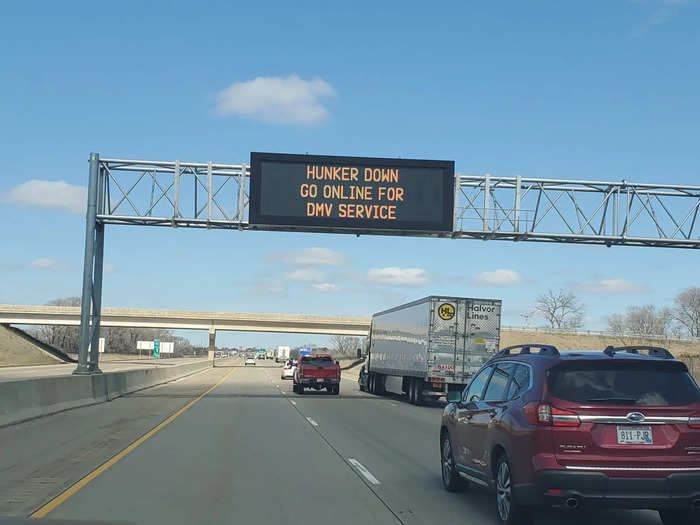
The roads in Wisconsin were just as empty as everywhere else.
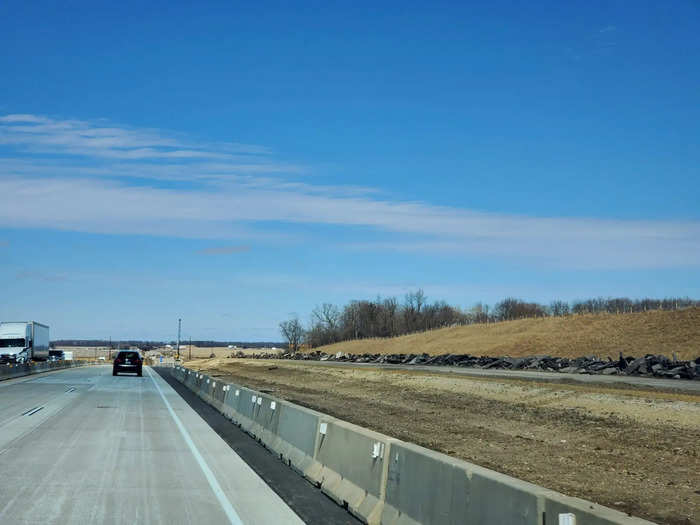
When we passed cars, most of them were packed full of stuff, making us think they were families or college students heading home to "hunker down," as the government recommended.
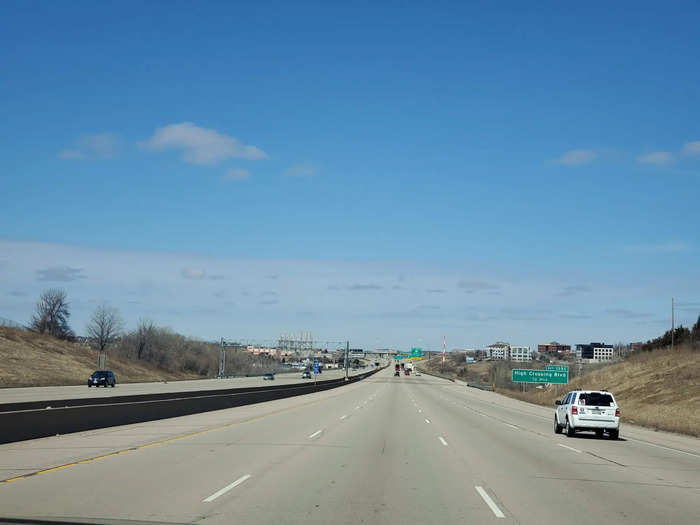
We stopped at a Dunkin outside Wisconsin Dells for a pick-me-up, and they had signs referencing the pandemic like everyone else. They were offering take-out and drive-thru service, but no seating.
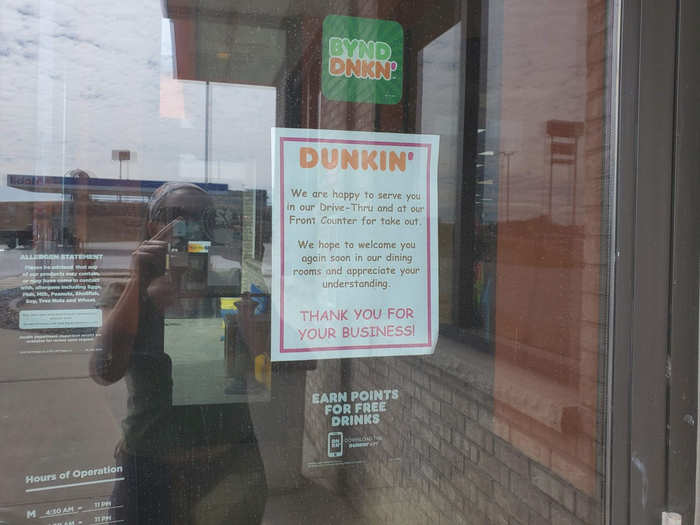
The tables and chairs were removed from inside the Dunkin to drive the point home. I paid for the coffees with Samsung Pay on my phone, so I didn't have to touch anything.
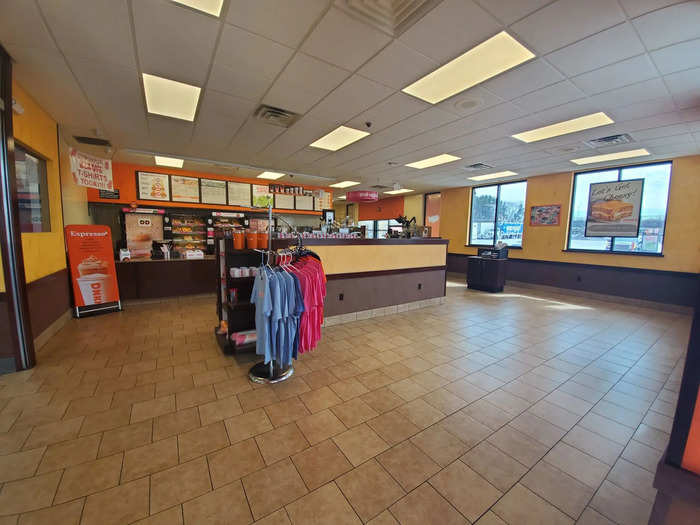
At every gas station we visited, including the one that was attached to the Dunkin, the self-service drinks were out of service.
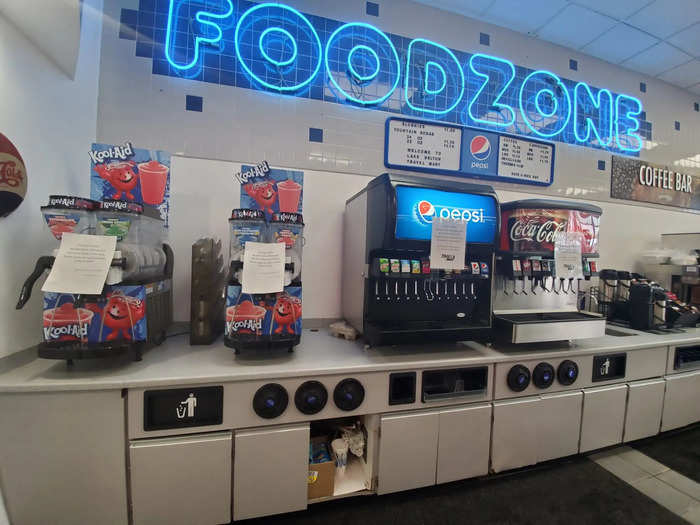
On the last miles home, semis still made up most of the vehicles on the highway.
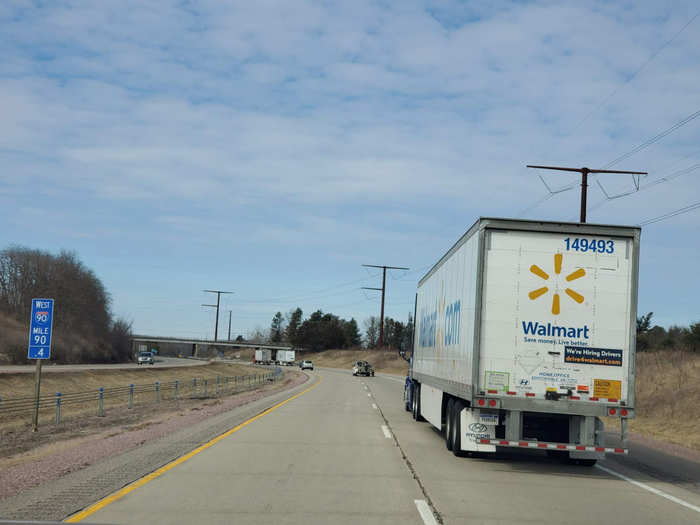
We made it! The alpacas seemed happy to see me.
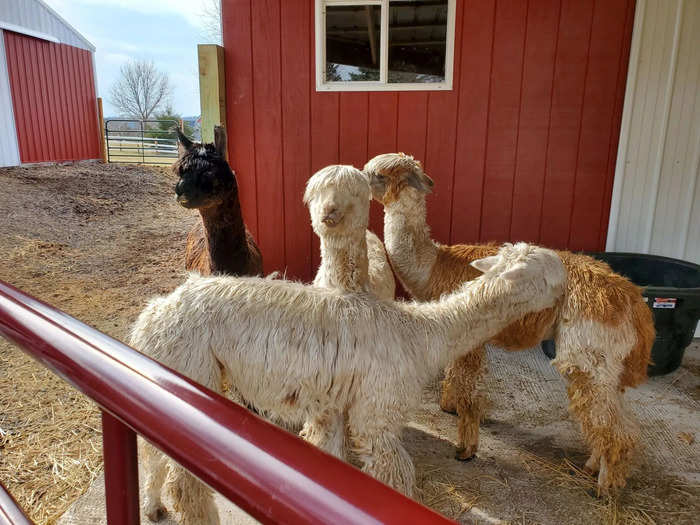
I felt much calmer when I got to the farm. The deciding factor for me leaving the city was so I would be able to go outside while avoiding people. It's nice to have my family and the animals around for company, too. I'm glad I made the trip, and grateful my dad drove out so I could avoid flying.
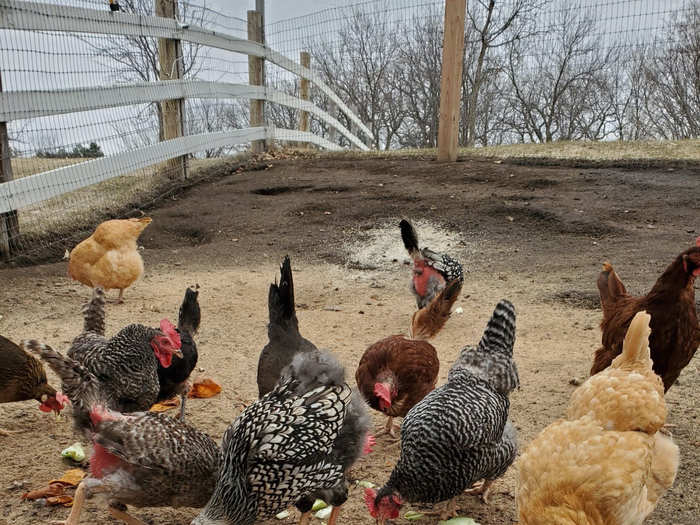
Popular Right Now
Popular Keywords
Advertisement